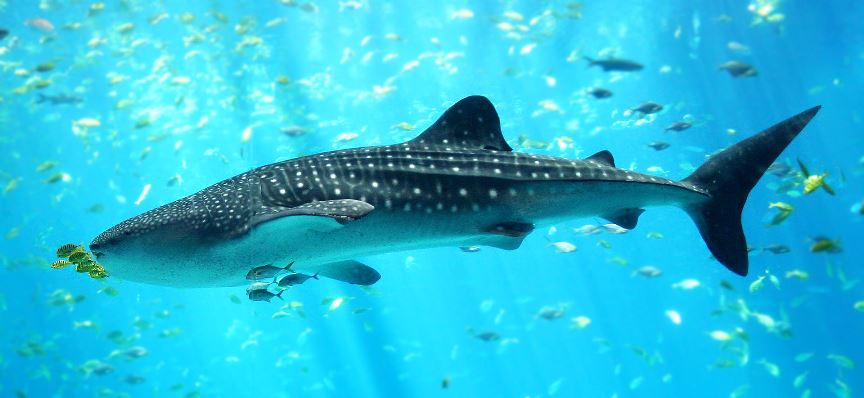Every April in the seaside town of Donsol, in the Philippines, dozens of boats topped with sculptures of whale sharks float down the coast in a colorful armada. On land, residents parade through the streets with whale shark floats and banners, many of them decorated with the animal’s strikingly patterned white spots.
It’s all part of a celebration called the Butanding Festival. “Butanding” is Tagalog for whale shark—a species that transformed Donsol’s economy after a large cluster of the animals was discovered off the coast in 1998. Almost overnight, tourists began visiting the region to watch the huge, spotted fish feed on plankton; the local government quickly declared the region’s waters a sanctuary.
WWF soon began working with local leaders and stakeholders to design a community- based whale shark ecotourism program. The program helped establish guidelines for protecting the species while creating new tourism jobs for locals. It also allowed WWF scientists to start identifying and tracking whale sharks to study their behavior and migrations.
Thousands of visitors now flock to Donsol every year. The town’s annual income has risen dramatically, and many residents—especially those in local fishing communities— now work as tour guides, whale shark guideline enforcers, and resort staff.
The program expanded even further in January 2016, when Royal Caribbean Cruises Ltd. announced a five-year partnership with WWF to help protect the world’s oceans. Its first move? A $200,000 donation to Donsol’s whale shark program, to ensure that at future festivals, there’s even more to celebrate.
While the whale sharks can be found in numerous scuba diving spots around Donsol, such as Manta Bowl, the best and most reliable interactions are in Donsol Bay, where the whale sharks come right up to the surface.
During whale shark interactions, you will go out on a small boat with a guide and a spotter. The local fishermen have been retrained as guides and spotters to reliably find whale sharks! As soon as they see a whale shark, you ready yourself with mask, snorkel and fins. The boat will be positioned so you have time to jump in the water before the shark reaches you. And then you swim alongside these gentle giants; one of the most ptofound of all ecotourism experiences.
The whale shark (Rhincodon typus) is a slow-moving filter feeding shark and the largest known extant fish species. The largest confirmed individual had a length of 12.65 m (41.5 ft) and a weight of about 21.5 t (47,000 lb).[3] Unconfirmed claims of considerably larger individuals, over 14 m (46 ft) long and weighing at least 30 t (66,000 lb), are not uncommon.
The whale shark holds many records for sheer size in the animal kingdom, most notably being by far the largest living nonmammalian vertebrate. The species originated about 60 million years ago.
Photo of Whale Shark by Zac Wolf via Wikipedia.

